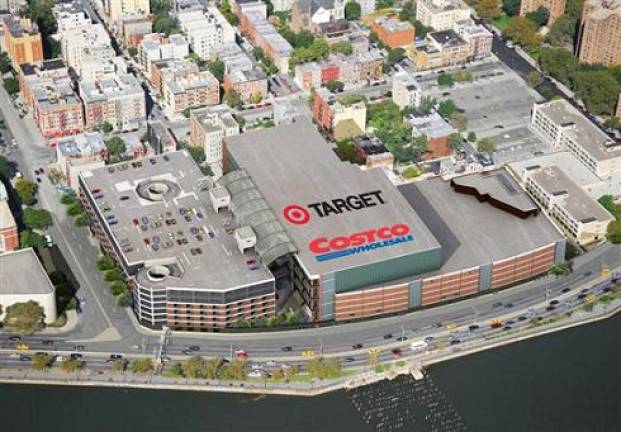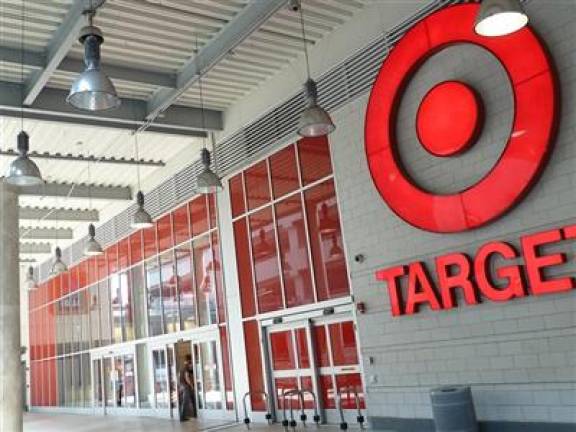Target Claims Theft Is Behind Harlem Store Closure; 293 Employees Could Be Laid Off
Target proclaims that organized retail theft and threats to employees has forced it to shutter various locations, including one in East Harlem. A local NYPD inspector expressed disappointment and cited lower shoplifting figures year-over-year. Recent Q2 figures from the company show a solid dip in profits, both digitally and in retail.


Citing retail theft and customer threats against employees, Target will be closing nine locations nationwide–including their outlet on the FDR Drive.
“In this case, we cannot continue operating these stores because theft and organized retail crime are threatening the safety of our team and guests, and contributing to unsustainable business performance,” the company said in a statement, adding that “we know that our stores serve an important role in their communities, but we can only be successful if the working and shopping environment is safe for all.”
They added that they believed investments in third-party security guard services, locked merchandise cases, and even a partnership with the Department of Homeland Security had not adequately improved matters.
According to a WARN notice filed via the NY Department of Labor on September 26, 293 people could be out of a job. The notice confirmed that the store will shut its doors on October 21, but employees who do not transfer to another store will be paid through December 30.
The store opened in 2010, after the Minneapolis-based chain spent an expensive decade schmoozing with local political and community leaders. It also came accompanied by the redevelopment of nearby properties, not to mention investment in a nearby public school.
As to be expected, a maelstrom of reactions from New Yorkers immediately followed the closure announcement: skeptics pointed to a lack of solid data, conservative media outlets portrayed liberal prosecutors as soft on crime, and a local NYPD inspector expressed disappointment and cited lower year-over-year theft stats.
NYPD Deputy Inspector Raul Maisonet, who is also the commanding officer of the precinct covering the East Harlem store (the 25th), told ABC7 that he was “disappointed to hear” about the closure. He also said that shoplifting incidents were down in the precinct. Crime statistics demonstrate that larceny and grand larceny figures are collectively down by 14.5 percent year-over-year in the precinct.
Cops, of course, won’t be the only people questioning Target’s provided rationale for the closure. Retail theft is often measured as part of “shrinkage,” which is defined as an overall rate of lost goods affecting profits. Shrink is not merely limited to theft. It can include issues with vendors, damaged goods, or other varieties of inventory loss.
In an interesting coincidence, the National Retail Federation released a report on the same day of Target’s announcement, which indicated that the average overall shrink rate for retailers such as Target was up by 0.2 percent between 2021 and 2022 (from 1.4 percent to 1.6 percent). Although “external” or organized retail theft was identified as the most prevalent category of this shrinkage, it was down by nearly a percentage point (from 37 percent to 36.15 percent) between 2021 and 2022. In fact, the amount of theft by store employees themselves–defined as “internal” theft–was nearly as high (at 29 percent of the overall shrinkage rate) and did not meaningfully change.
Other sources of solid data on retail theft are hard to come by, as outlets such as CNBC have reported on extensively. That makes the National Retail Federation’s report a useful resource; the fact that outside retail theft “shrinkage” has not meaningfully skyrocketed is worth noting.
Certain conservative outlets attributed the closure to the political left, with the New York Post blaming “progressive prosecutors who refuse to go after shoplifters.” National Review described Target’s decision as “closing nine stores in four far-left cities because organized retail crime is threatening the safety of employees and customers.”
In its statement announcing the closures, Target said that “eligible” employees would be allowed to transfer to other remaining locations, and that they “have worked hard to maintain our high standards by creating a positive working and shopping experience for each other, our guests and their communities.”
Outside of theft woes, Target is not quite having a banner year, which seems like it might contribute to its decision to cut back on physical retail space. A recent e-commerce report by Abbas Haleem, which reviewed the company’s Q2 reports for this year, pointed out that Target’s “comparable in-store sales declined 4.3 percent in the second quarter versus the same quarter last year. Target’s total revenue in Q2 reached $24.8 billion. That’s down 4.9 percent year over year. Operating profit after taxes was $3.89 billion, down from $4.63 billion in the year-ago period.”
In an odd twist, Target appears to be moving forward with their new downtown location in Union Square. Shoppers can rush those doors beginning on October 22, the day after the East Harlem store is set to close.
Target did not respond to calls for comment from Straus News as of press time.
“In this case, we cannot continue operating these stores because theft and organized retail crime are threatening the safety of our team and guests, and contributing to unsustainable business performance.” Target on its rationale for closing nine stores nationally, including one in East Harlem.